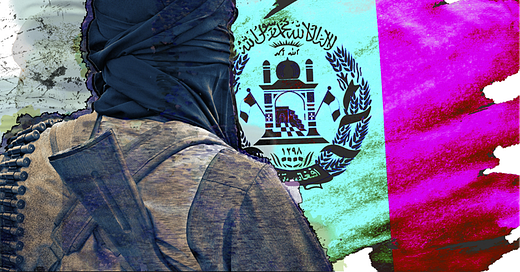Underestimating Taliban propaganda may partially explain the failure to predict takeover
The US failure to predict such a swift Taliban takeover may — in part — be because we underestimated Taliban propaganda one last time.
We failed to learn the lesson of this war
The US failed to predict a swift Taliban takeover and that may – in part – be for the same reason the War on Terror struggled from the beginning. US leadership – from 2001 all the way through 2021 – consistently underestimated or struggled to understand the role that information operations played in the Taliban’s power. Although we identified this misstep years ago, the evidence suggests we may have erred one last time.
“The US and ISAF should have carefully studied Taliban propaganda and attempted to learn from the Taliban’s information operation strategies. Quite simply, the Taliban clearly know what resonates with the Afghan population, and the narratives and stories presented below will clearly reflect this. They understand relevant cultural referents and themes, and of course local traditions. We quite simply do not.”
Taliban Narratives by Thomas Johnson
Before taking Kabul, the Taliban had disseminated a steady stream of propaganda that reframed the relationship between the Afghan Special Forces, the Taliban, and outsiders, US soldiers. Accounts tweeting pro-Taliban content referred to the Afghan military’s actions as "killing Afghans in their homes." The Twitter accounts urged the Afghan Special Forces not to be America’s “trained dirty creature.” Twitter has banned some Taliban accounts in the past, but ban-evasion accounts can allow bad actors to re-appear.
Hoaxlines found references to what happened in Vietnam to suggest that they too would be abandoned or suffer a "pointless death." In a similar vein, both Russia and China have recently claimed the US would likewise desert Ukraine and Taiwan, respectively. Social media campaigns that may have been targeting the Afghan government and military, reframed relationships as us-versus-them between Muslim people native to the region and meddling outsiders, who were nearly defeated.
One noteworthy campaign came in early June 2021. Tweets discussed “deceived soldiers” with an associated hashtag. The message was, “dissident soldiers welcome.”Paired with over a year’s worth of propaganda showing the training of Taliban forces, and the Afghan forces may have wanted to avoid a “pointless death.”
Posts consistently discussed the relationships between the US and Afghan forces as a false narrative – but the bonds and the shared purpose had been real. Much of the content seemed designed to demonize Western troops, especially Americans. One video circulating among pro-Taliban accounts claims to show US soldiers pushing a woman in a “dirty canal.” Another post claimed an Australian soldier had killed civilians.
It’s unclear what the video shows. Stories of atrocities carried out by American and other Western soldiers have been a long-term staple in the Taliban’s propaganda. Any future narratives can build upon this foundation.
Triumphs over the Afghan soldiers were advertised, with special attention to the Taliban prevailing despite a lengthy exchange. Those opposing the Taliban were cast as enemies who wished to destabilize Afghanistan. Pro-Taliban accounts portrayed the public as grateful and happy. That content may be for global audiences as much as it is for the Afghan people.
Scholars have noted that although the Taliban has officially enacted more humane guidance in the past, their behavior did not follow. The outward proclamations of women’s rights should be scrutinized through the lens of this possibility. Experts remain skeptical of claims the Taliban has changed.
Accounts praising and displaying the Taliban’s new-and-improved governance were many, but we did see dissenting voices from accounts that appear to have been Afghan citizens. Blindfolded subjects have been posted multiple times. One endorsement that someone “hadn’t sold a single coffin in three nights,” was perhaps one of the most telling about the circumstances in which the Afghan people now live.
The topic of women, schools, and work have been conspicuously addressed, and the treatment of women was framed as authentic respect rather than oppression. The Taliban also loudly assured the world it would offer broad amnesty to those who had worked with the US and other outside groups. Merciful treatment of soldiers who laid down their weapons appeared commonly, coupled with idyllic depictions of serving the Taliban.
Certain posts, like the comparison between the Taliban and Ukraine and group pictures taken with Russian journalists, might suggest a closer relationship than is currently recognized. RT disseminates considerable amounts of disinformation through its Arabic language outlet. These images and content alone are not sufficient to draw such a conclusion, but the possibility warrants exploration.








